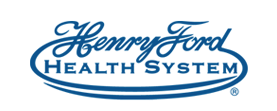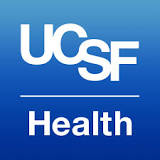Ramucirumab or Anti-PDGFR Alpha Monoclonal Antibody IMC-3G3 in Treating Patients With Recurrent Glioblastoma Multiforme
| Status: | Completed |
|---|---|
| Conditions: | Brain Cancer |
| Therapuetic Areas: | Oncology |
| Healthy: | No |
| Age Range: | 18 - Any |
| Updated: | 12/29/2017 |
| Start Date: | July 2010 |
| End Date: | March 4, 2014 |
An Open Label, Phase 2 Study Evaluating the Safety and Efficacy of IMC-3G3 or IMC-1121B in Patients With Recurrent Glioblastoma Multiforme
RATIONALE: Monoclonal antibodies, such as ramucirumab and anti-PDGFR alpha monoclonal
antibody IMC-3G3 (Olaratumab), can block tumor growth in different ways. Some block the
ability of tumor cells to grow and spread. Others find tumor cells and help kill them or
carry tumor-killing substances to them.
PURPOSE: This phase II trial is studying how well ramucirumab or anti-PDGFR alpha monoclonal
antibody IMC-3G3 works in treating patients with recurrent glioblastoma multiforme.
antibody IMC-3G3 (Olaratumab), can block tumor growth in different ways. Some block the
ability of tumor cells to grow and spread. Others find tumor cells and help kill them or
carry tumor-killing substances to them.
PURPOSE: This phase II trial is studying how well ramucirumab or anti-PDGFR alpha monoclonal
antibody IMC-3G3 works in treating patients with recurrent glioblastoma multiforme.
OBJECTIVES:
Primary
- To assess the progression-free survival rate at 6 months after treatment with
ramucirumab or anti-PDGFR alpha monoclonal antibody IMC-3G3 in patients with recurrent
glioblastoma multiforme.
Secondary
- To evaluate the acute and late toxicities associated with these regimens.
- To assess the objective tumor response rate.
- To estimate the overall survival of these patients.
- To describe the pharmacokinetic and pharmacodynamic profiles and immunogenicity of these
regimens.
OUTLINE: This is a multicenter study. Patients are sequentially assigned to 1 of 2 treatment
groups.
- Group 1: Patients receive ramucirumab IV over 1 hour on day 1. Courses repeat every 14
days in the absence of disease progression or unacceptable toxicity.
- Group 2: Patients receive anti-PDGFR alpha monoclonal antibody IMC-3G3 IV over 60-90
minutes on day 1. Courses repeat every 14 days in the absence of disease progression or
unacceptable toxicity.
Primary
- To assess the progression-free survival rate at 6 months after treatment with
ramucirumab or anti-PDGFR alpha monoclonal antibody IMC-3G3 in patients with recurrent
glioblastoma multiforme.
Secondary
- To evaluate the acute and late toxicities associated with these regimens.
- To assess the objective tumor response rate.
- To estimate the overall survival of these patients.
- To describe the pharmacokinetic and pharmacodynamic profiles and immunogenicity of these
regimens.
OUTLINE: This is a multicenter study. Patients are sequentially assigned to 1 of 2 treatment
groups.
- Group 1: Patients receive ramucirumab IV over 1 hour on day 1. Courses repeat every 14
days in the absence of disease progression or unacceptable toxicity.
- Group 2: Patients receive anti-PDGFR alpha monoclonal antibody IMC-3G3 IV over 60-90
minutes on day 1. Courses repeat every 14 days in the absence of disease progression or
unacceptable toxicity.
DISEASE CHARACTERISTICS:
- Histologically confirmed supratentorial glioblastoma multiforme (GBM)
- Patients with prior low-grade glioma who progressed after radiotherapy ±
chemotherapy and are biopsied and found to have GBM are eligible
- Progressive or recurrent disease after radiotherapy ± chemotherapy
- Measurable disease by contrast-enhanced MRI or CT scan
PATIENT CHARACTERISTICS:
- Karnofsky performance status 60-100%
- Life expectancy ≥ 3 months
- Absolute neutrophil count ≥ 1,500/millimeter cubed (mm³)
- Platelet count ≥ 100,000/mm³
- Hemoglobin ≥ 9 gram/deciliter (g/dL)
- Creatinine ≤ 1.5 milligram/deciliter (mg/dL) OR creatinine clearance > 60 mL/min
- Total bilirubin ≤ 1.5 mg/dL
- Transaminases ≤ 3 times upper limit of normal (ULN)
- Urine protein ≤ 2+ by dipstick or urinalysis or ≤ 1,000 mg by 24-hour urine collection
- International Normalized Ratio (INR) ≤ 1.5
- Partial Thromboplastin Time (PTT) ≤ 5 seconds above ULN
- Not pregnant or nursing
- Negative pregnancy test
- Fertile patients must use effective contraception during and for ≥ 12 weeks after
completion of study treatment
- Mini Mental State Exam score ≥ 15
- Able to undergo magnetic resonance imaging (MRI) (i.e., no pacemaker, aneurysm clip,
or claustrophobia)
- No concurrent serious infection or medical illness that would jeopardize the ability
of the patient to receive the treatment outlined in this study with reasonable safety
including, but not limited to, any of the following:
- Uncontrolled hypertension
- Symptomatic congestive heart failure
- Unstable angina pectoris
- Cardiac arrhythmia
- Psychiatric illness/social situation that would limit compliance with study
requirements
- No other malignancy within the past 5 years, except curatively treated carcinoma in
situ or basal cell carcinoma of the skin
- No major bleeding episode within the past 3 months
- No myocardial infarction, unstable angina pectoris, cerebrovascular accident, or
transient ischemic attack within the past 6 months
- No serious or non-healing wound, ulcer, or bone fracture
- No uncontrolled or poorly controlled hypertension, despite standard medical management
- No known allergy to any of the treatment components
- No known HIV positivity or AIDS-related illness
- No uncontrolled thrombotic or hemorrhagic disorders
- No grade 3-4 gastrointestinal bleeding within the past 3 months
- No gross hemoptysis (≥ ½ teaspoon) within the past 2 months
PRIOR CONCURRENT THERAPY:
- See Disease Characteristics
- Recovered from prior therapy
- At least 3 months since prior radiotherapy
- At least 3 weeks since prior chemotherapy (6 weeks for nitrosoureas)
- At least 2 weeks since prior FDA-approved, non-cytotoxic agents (e.g., celecoxib,
thalidomide)
- At least 3 weeks since prior investigational, non-cytotoxic agents
- More than 28 days since prior major surgery, including brain biopsy
- More than 7 days since prior subcutaneous venous access device placement
- No prior treatment with other agents that directly inhibit Platelet-Derived Growth
Factor Receptor (PDGFR)α/β, Platelet-Derived Growth Factor (PDGF), Vascular
Endothelial Growth Factor (VEGF), or Vascular Endothelial Growth Factor Receptor
(VEGFR)s
- No concurrent therapeutic anticoagulation, chronic daily treatment with aspirin (> 325
mg/day), or other known inhibitors of platelet function
- No concurrent prophylactic hematopoietic growth factors (e.g., erythropoietin,
Granulocyte Colony Stimulating Factor (G-CSF), Granulocyte-macrophage Colony
Stimulating Factor (GM-CSF), or Interleukin (IL-11) during the first course of
treatment
- No concurrent elective or planned surgery
- No other concurrent therapy for the tumor (e.g., chemotherapy or investigational
agents)
- Concurrent steroids allowed
We found this trial at
11
sites
2799 W Grand Blvd
Detroit, Michigan 48202
Detroit, Michigan 48202
(888) 777-4167

Josephine Ford Cancer Center at Henry Ford Hospital A diagnosis of cancer is one of...
Click here to add this to my saved trials
Sidney Kimmel Comprehensive Cancer Center at Johns Hopkins The name Johns Hopkins has become synonymous...
Click here to add this to my saved trials
UAB Comprehensive Cancer Center One of the nation’s leading cancer research and treatment centers, the...
Click here to add this to my saved trials
Click here to add this to my saved trials
Cleveland Clinic Taussig Cancer Center At Taussig Cancer Institute, more than 250 highly skilled doctors,...
Click here to add this to my saved trials
10833 Le Conte Avenue # 8-950
Los Angeles, California 90095
Los Angeles, California 90095
(310) 825-5268

Jonsson Comprehensive Cancer Center at UCLA In the late 1960s, a group of scientists and...
Click here to add this to my saved trials
4117 East Fowler Avenue
Tampa, Florida 33612
Tampa, Florida 33612
(813) 745-4673

H. Lee Moffitt Cancer Center and Research Institute at University of South Florida Moffitt Cancer...
Click here to add this to my saved trials
1 Medical Center Blvd
Winston-Salem, North Carolina 27103
Winston-Salem, North Carolina 27103
(336) 716-2011

Wake Forest University Comprehensive Cancer Center Our newly expanded Comprehensive Cancer Center is the region’s...
Click here to add this to my saved trials
Click here to add this to my saved trials
Click here to add this to my saved trials
505 Parnassus Ave
San Francisco, California 94143
San Francisco, California 94143
(415) 476-1000

University of California, San Francisco Medical Center UCSF Medical Center is recognized throughout the world...
Click here to add this to my saved trials



